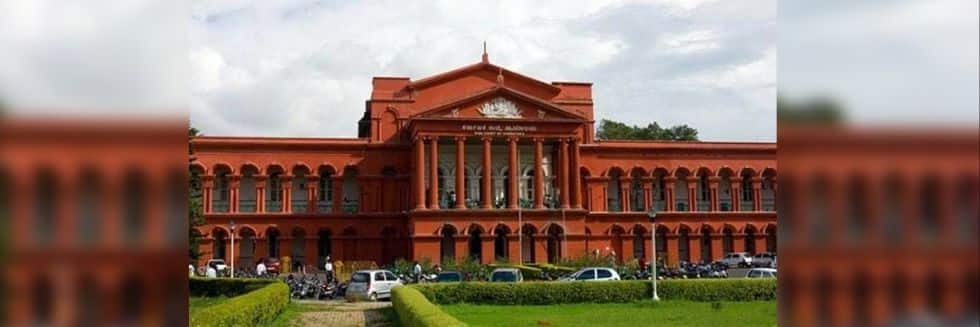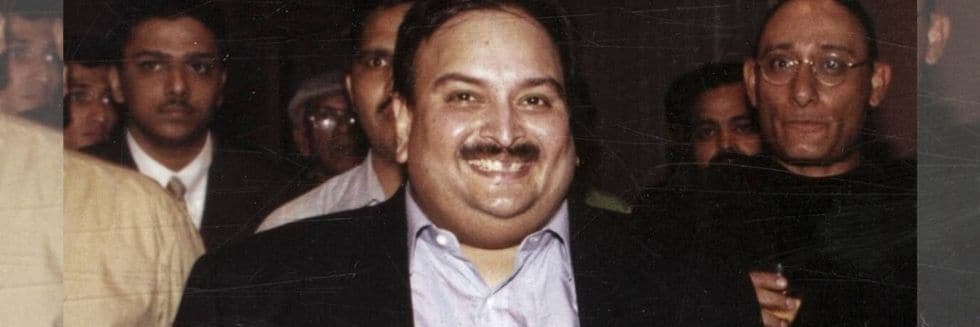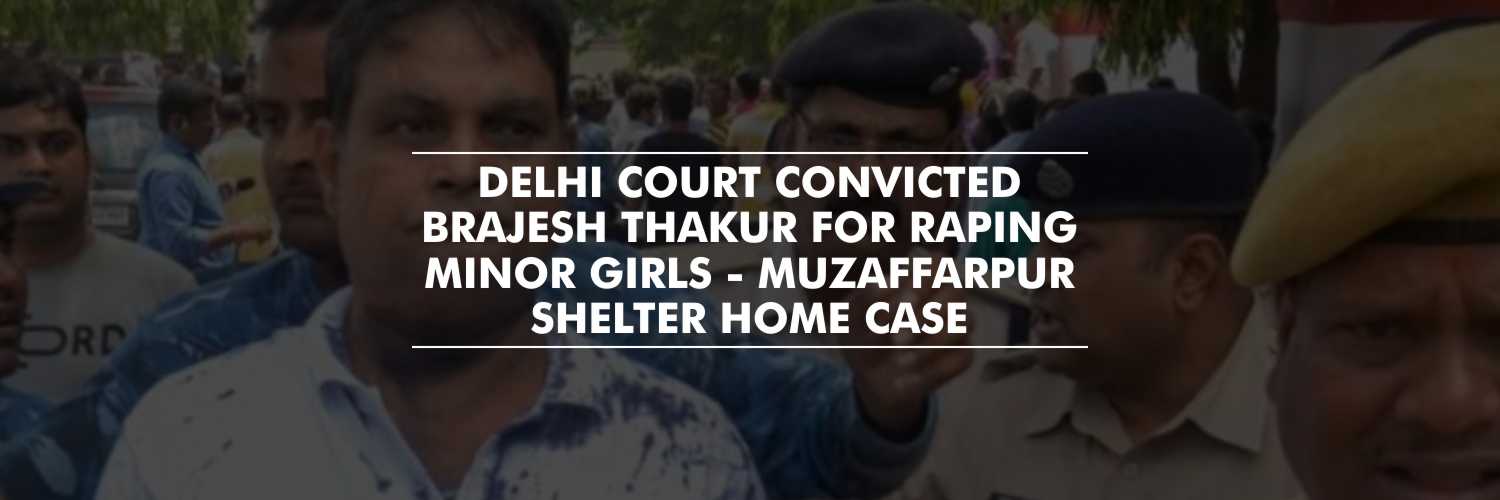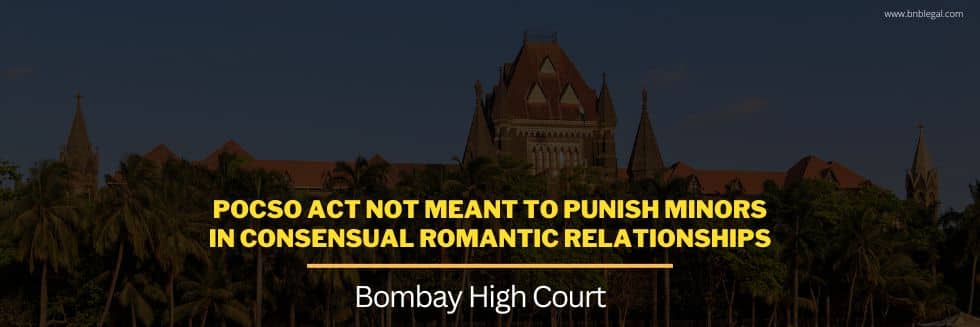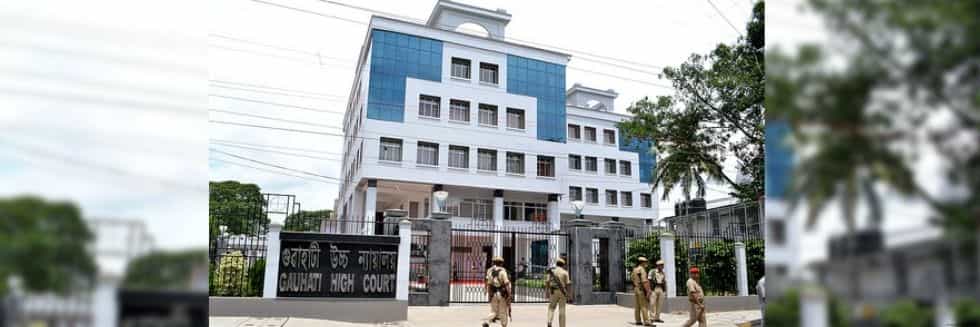In a significant judgment, Karnataka High Court has defied the marital rape exception and rejected a plea filed by a husband seeking directions to drop rape charges against him under Section 376 of the Indian Penal Code.
Noting that exemption cannot be absolute, the High Court bench refused to accept the husband’s contention that charges cannot be framed against him due to Exception 2 to Section 375 of the Indian Penal Code.
Criminalisation of marital rape has remained a debatable topic in Delhi High Court in recent months.
A single-judge bench of Justice M Nagaprasanna, “The exemption of the husband on committal of such assault/rape, in the peculiar facts and circumstances of this case, cannot be absolute, as no exemption in law can be so absolute that it becomes a license for commission of crime against society.”
The bench noted that this exemption is regressive and is contrary to the principle of equality enshrined under Article 14 of the Constitution of India.
“The Constitution, a fountainhead of all statutes depicts equality. The Code practices discrimination. Under the Code, every other man indulging in offences against woman is punished for those offences. But, when it comes to Section 375 of IPC the exception springs. In my considered view, the expression is not progressive but regressive, wherein a woman is treated as a subordinate to the husband, which concept abhors equality,” the bench noted.
“If a man, a husband, a man he is, can be exempted of allegation of commission of ingredients of Section 375 of the IPC, inequality percolates into such provision of law. Therefore, it would run counter to what is enshrined in Article 14 of the Constitution,” the bench added.
High Court went on to add, “All human beings under the Constitution are to be treated equal, be it a man, be it a woman and others. Any thought of inequality, in any provision of law, would fail the test of Article 14 of the Constitution. Woman and man being equal under the Constitution cannot be made unequal by Exception-2 to Section 375 of the IPC. It is for the law makers to ponder over existence of such inequalities in law.”
The bench clarified that it has not ruled on the constitutionality of Exception 2 to Section 375 of Indian Penal Code.
“A man who is well acquainted with a woman performs all the ingredients as is found in pre or post amendment to Section 375 of the IPC, can be proceeded against for offences punishable under Section 376 of IPC. Therefore, a man sexually assaulting or raping a woman is amenable to punishment under Section 376 of IPC,” the bench said.
High Court rejected the contention that if the man is the husband, performing the very same acts as that of another man, he is exempted.
“A Man Is a Man; an Act Is an Act; Rape Is a Rape, Be It Performed by a Man the “Husband” on the Woman “Wife“,” noted Justice Nagaprasanna.
Case Backdrop
The wife had filed a complaint against her husband in 2017. She had lodged a complaint under Section 506, Section 498A, Section 323, Section 377 of the Indian Penal Code and Section 10 of the Protection of Children from Sexual Offences Act, 2012 (POCSO).
As the police filed a chargesheet against the accused, offences punishable under Section 498A, Section 354, Section 376, Section 506 of the IPC and Sections 5(m) and (l) r/w Section 6 of the POCSO Act, 2012, were invoked.
The Special Court framed charges against the husband for offences punishable under Section 376, Section 498A and Section 506 of IPC and Section 5(m) and (l) r/w Section 6 of the POCSO Act.
Court Observations
Going through the chargesheet, the bench said, “The charge sheet filed by the Police after investigation (supra) also depicts graphic details of the demonish lust of accused No.1 who even according to the investigation has had unnatural sex; every time has sexual intercourse torturing or abusing the wife, or threatening to beat the daughter or beating the daughter, all for satisfaction of the gory carnal lust.”
The bench added, “Exception to Section 375 has existed in the IPC since the time of its enactment by the British in the year 1860. Exception-2 then was guided by the laws that were existent in all the countries where the British had their foot on. They were several decades ago. It was founded and remained on the premise of a contract in the medieval law that husbands wielded their power over their wives.”
“Post Republic, India is governed by the Constitution. The Constitution treats woman equal to man and considers marriage as an association of equals. The Constitution does not in any sense depict the woman to be subordinate to a man. The Constitution guarantees fundamental rights under Articles 14, 15, 19 and 21 which are right to live with dignity, personal liberty, bodily integrity, sexual autonomy, right to reproductive choices, right to privacy, right to freedom of speech and expression. Under the Constitution, the rights are equal; protection is also equal,” the court added.
While referring to the amendment in section 375, post the Nirbhaya case of 2013, the bench stated, “The amended exception depicts intercourse by a man with his own wife, the wife not being under 15 years of age would not be a rape. The post amendment the exception adds the words ‘sexual acts’ by a man along with the words ‘sexual intercourse’. The difference is inclusion of the word “or sexual acts”. Therefore, the exception now is of sexual intercourse and other sexual acts by the husband stand exempted.”
Justice Nagaprasanna added, “Therefore, a woman being a woman is given certain status; a woman being a wife is given a different status. Likewise, a man being a man is punished for his acts; a man being a husband is exempted for his acts. It is this inequality that destroys the soul of the Constitution which is Right to Equality.”
The bench also considered Article 14, Article 15, Article 16, Article 21, Article 23, Article 39, and Article 243D of the Constitution of India, relevant provisions related to the protection of women as mentioned in the Indian Penal Code and also enactments like the Immoral Traffic (Prevention) Act, 1956, The National Commission for Women, Dowry Prohibition Act, 1961.
The bench noted, “On a coalesce of all the afore-said and afore-quoted Articles of the Constitution, the provisions of the IPC and specific Acts promulgated, what would unmistakably emerge is the rights of women, protection of women and their equal status to that of a man without exception. Therefore, women are equal in its true sense factually and legally.”
“Justice Verma Committee (supra) also recommended for deletion of the exception of marital rape. But, the amendment came about was only replacing the word ‘rape’ with ‘sexual assault’ in Section 375 of IPC. Therefore, the situation now emerges is equality pervades through the Constitution, but inequality exists in the Code qua – Exception-2 to Section 375 of the IPC,” the bench added.
“Institution of marriage does not confer, cannot confer and in my considered view, should not be construed to confer any special male privilege or a license for unleashing of a brutal beast. If it is punishable to a man, it should be punishable to a man albeit, the man being a husband,” stated the bench.
The Thought That Husbands Are the Rulers of Their Wives, Their Body, Mind and Soul Should Be Effaced
The bench observed, “The exemption of the husband on committal of such assault/rape, in the peculiar facts and circumstances of this case, cannot be absolute, as no exemption in law can be so absolute that it becomes a license for commission of crime against society. Though the four corners of marriage would not mean society, it is for the legislature to delve upon the issue and consider tinkering of the exemption.”
The bench added, “This Court is not pronouncing upon whether marital rape should be recognized as an offence or the exception be taken away by the legislature. It is for the legislature, on an analysis of manifold circumstances and ramifications to consider the aforesaid issue. This Court is concerned only with the charge of rape being framed upon the husband alleging rape on his wife.”
The court went on to add, “For ages man donning the robes of a husband has used the wife as his chattel; but his crude behavior notwithstanding his existence because of a woman. The age old thought and tradition that the husbands are the rulers of their wives, their body, mind and soul should be effaced. It is only on this archaic, regressive and preconceived notion, the cases of this kind are mushrooming in the nation. Such sexual assault by a husband on his wife will have grave consequences on the mental sheet of the wife, it has both psychological and physiological impact on her. Such acts of husbands scar the soul of the wives.”
